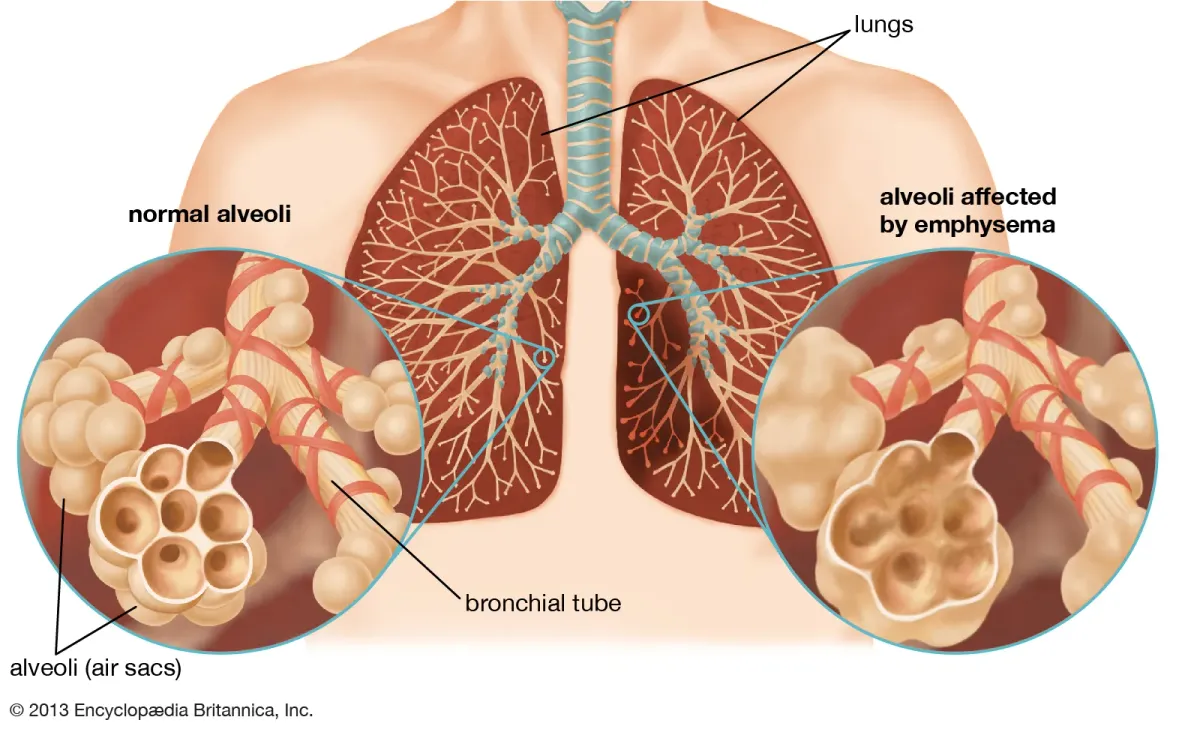Emphysema - What is Emphysema?

If you suspect that you have emphysema, you should visit a health care provider regularly for a checkup. If you have this condition, you should also be sure to get routine vaccinations to keep your body healthy. Breathing can be difficult for people with emphysema, and some even require oxygen therapy to breathe. Your healthcare provider can help you understand your treatment options and recommend the best one for you. Depending on the severity of your disease, you may also need surgery to remove damaged lung tissue or to reduce large spaces in the lungs.
Symptoms
Symptoms of emphysema include coughing and shortness of breath. If you have these symptoms for a long period of time, it's important to see a doctor. The doctor will examine your condition and ask about your lifestyle and health history. He may perform tests to make a definitive diagnosis or to rule out another disease. Depending on your symptoms, your doctor may order a chest X-ray or computed tomography scan. He or she may also perform a series of lab tests, including spirometry. These tests measure the rate of airflow and the obstruction in the airways.
Other symptoms of emphysemia include shortness of breath, also known as dyspnea. Shortness of breath may be present only during periods of physical activity or it may develop suddenly when you are resting. Shortness of breath may be caused by other diseases, so it's essential to consult a doctor right away to rule out other causes.
Causes
Emphysema is a disease of the lungs that destroys the air sacs, or alveoli. These sacs are responsible for breathing and transfer oxygen from the air to the bloodstream. When these air sacs are damaged by emphysema, their walls collapse and they no longer function properly. This restricts the amount of oxygen that can enter the bloodstream and results in shortness of breath.
Treatment for emphysema focuses on relieving symptoms and slowing the destruction of the alveoli. In addition to medications, patients must maintain general health and avoid respiratory infections. Exercise and a healthy diet are essential to maintaining respiratory strength. Avoiding smoke and other environmental pollutants is also recommended.
Treatments
Emphysema treatments vary depending on the stage of the disease and the severity of the symptoms. Typically, people with this condition will receive oxygen through a face mask or nasal tube. Other methods include a medically delivered oxygen tank and pulmonary rehabilitation. For more severe cases, lung transplantation may be the best option.
Several medications can help with the symptoms of emphysema. These medications work by opening airways, reducing inflammation, and reducing excess mucus. They also can help increase oxygen inhaled and decrease the symptoms of air hunger and dyspnea. These medications can be taken continuously, or as needed while sleeping.
Prevention
The best prevention for emphysema is to quit smoking. Every pack of cigarettes you smoke puts your health at risk. Also, avoid breathing in secondhand smoke. You should also wear a mask when you work around chemicals and dusts. If you have symptoms of emphysema, consult a doctor right away.
Emphysema is a progressive disease that affects the air sacs in the lungs. The disease destroys the lung tissue, which includes the alveoli and bronchial tubes. This causes the lungs to collapse, trapping air and making it difficult to breathe. The decreased oxygen in the bloodstream is one of the most common symptoms of emphysema.




